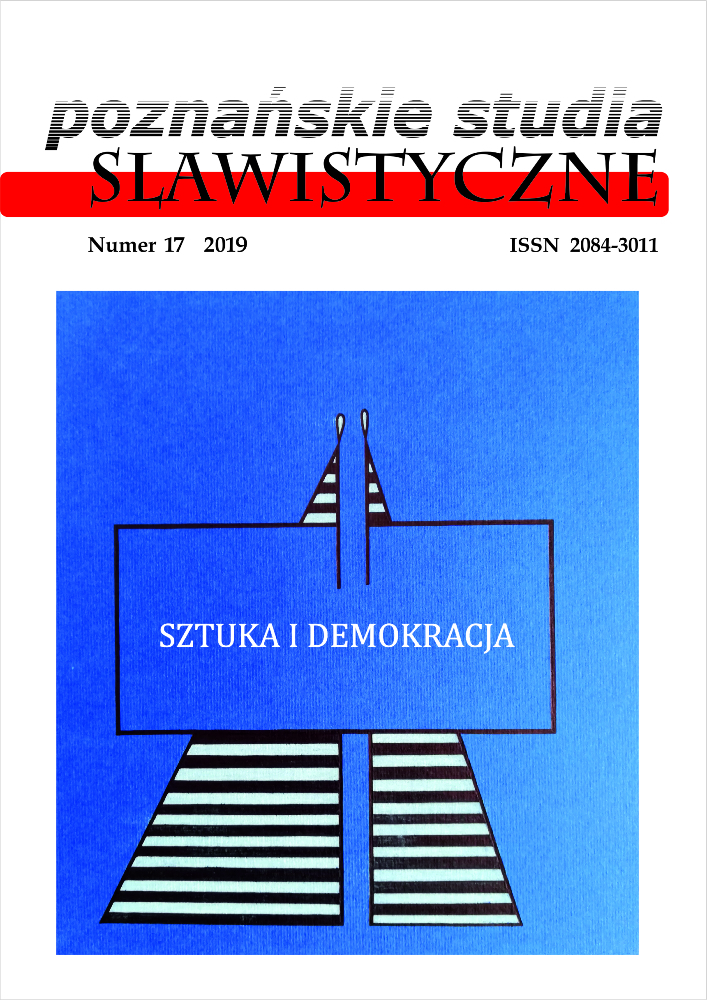Abstract
This article deals with the poetry of Julije Benešić (his collection Istrgnuti listovi – Torn Pages) in the context of Croatian modernist poetry based on three assumptions: the first, deductive one is that Benešić’s literary, literary-historical, theatrical and public personality is a potential metonymy of the entire Croatian culture of the first two decades of the 20th century; the second, literary-historical assumption is that the choice to use free verse can be read as a counter-modernist gesture against rationalism and structure of rhymed verse of Croatian modernist poetry; third, from the cultural-historical point of view, it is assumed that Benešić’s poetical profile is a reflection of his counter-modernist attitude that was shaped beyond the dominant poetical practices of modernism. The goal of this presentation is as much a cultural-historical as it is a literary-historical one, aimed at proving a thesis by which a small poetical contribution by Julije Benešić is synecdoche for the condition and the atmosphere of Croatian culture of the late modernism and the first interwar years. The notion of counter-modernism is historiographically restricted here and encompasses Benešić’s disputing statements in relation with the dominant paradigm in synchrony with the modernist period. The choice of free verse is understood as a statement of notion about the restraints of the poetics of rhymed verse of Croatian modernism. Since free verse was not part of the canon at the time, Benešić tried to use it to legitimize his own work and democratize the system of poetical competencies.References
Barac, A. (1947). Veličina malenih. Zagreb: Nakladni zavod Hrvatske.
Batušić, N., Kravar, Z., Žmegač, V. (2001). Književni protusvjetovi. Zagreb: Matica hrvatska.
Bloom, H. (1994). The western canon. New York -San Diego - London: Harcourt Brace & Company.
Brzozowski, S. (1910). Legenda Młodej Polski. Studja o strukturze duszy kulturalnej. Lwów: Nakładem Księgarni Polskiej B. Połonickiego.
Jurić, S. (2003). Tendencije u ranom hrvatskom slobodnom stihu. "Umjetnost riječi" br. 1-2, str. 107-128.
Jurić, S. (2005). Slobodni stih u eksplicitnim poetikama. "Književna smotra" br. 136/137(2/3), str. 3-30.
Kravar, Z. (2001). Suvremene teme i konzervativni nazori u lirici A. G. Matoša. U: N. Batušić, Z. Kravar, V. Žmegač, Književni protusvjetovi. Zagreb: Matica hrvatska, str. 89-96.
Kravar, Z. (2003). Antimodernizam. Zagreb: AGM.
Kravar, Z. (2005). Znaci vremena u hrvatskoj književnosti 1920-1930. U: Svjetonazorski separei. Zagreb: Golden marketing-Tehnička knjiga, str. 81-98.
Pavličić, P. (2003). Julije Benešić kao pjesnik. U: Barokni pakao. Zagreb: Naklada Pavičić, str. 297-300.
Pejaković, H. (1994). Julije Benešić (1883.-1957.). U: Julije Benešić, Izabrani tekstovi. Vinkovci: Slavonska naklada Privlačica, str. 137-49.
Žmegač, V. (1997). Duh impresionizma i secesije. Zagreb: Zavod za znanost o književnost Filozofskoga fakulteta u Zagrebu.
License

This work is licensed under a Creative Commons Attribution-NoDerivatives 4.0 International License.

